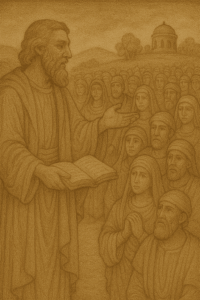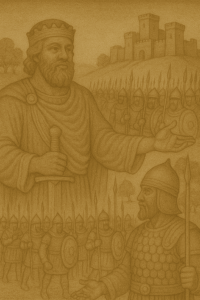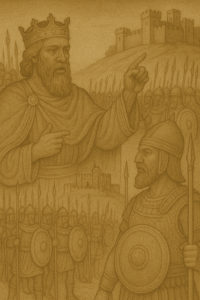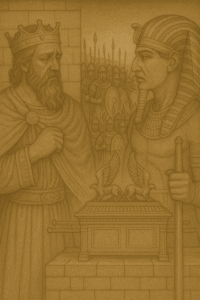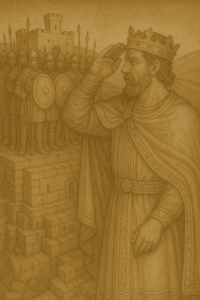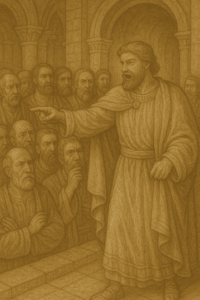Introduction.
1 Samuel Chapter 14 tells the story of Jonathan, son of King Saul, as he takes bold initiative in leading an attack on the Philistine garrison. His courage and faith in God’s ability to deliver Israel play a significant role in turning the tide of battle. This chapter highlights the power of faith, the importance of decisive leadership, and the contrast between Jonathan’s boldness and Saul’s flawed leadership.
Jonathan’s faith-fueled attack.
The chapter opens with Jonathan and his armor-bearer deciding to confront the Philistines without informing Saul. Jonathan’s faith is evident in his statement, “Nothing can hinder the Lord from saving, whether by many or by few.” With only his armor-bearer by his side, Jonathan scales a cliff to reach the Philistine outpost, demonstrating both courage and confidence in God’s power.
Once they reach the enemy, Jonathan and his armor-bearer engage in battle, striking down about twenty Philistines. This act of bravery triggers panic in the Philistine camp, causing confusion among their forces and leading to a massive rout.
God’s favor and Israel’s victory.
While Jonathan initiates the attack, it is clear that God plays a crucial role in Israel’s victory. As panic spreads among the Philistines, the ground shakes, further contributing to the chaos. Saul’s watchmen see the commotion in the Philistine camp and report it to him. Eventually, Saul and the rest of the Israelite army join the battle, and with God’s intervention, Israel is victorious.
However, the chapter also highlights Saul’s flawed leadership. During the battle, Saul makes a rash oath, forcing his soldiers to fast until evening. This decision weakens his troops and nearly costs his son Jonathan his life when Jonathan, unaware of the oath, eats honey. The people, recognizing Jonathan’s pivotal role in the victory, intervene to prevent Saul from executing him.
Key lessons from 1 Samuel chapter 14.
- Courage and faith in God: Jonathan’s faith and courage to act when others hesitated demonstrate the power of trusting in God’s ability to deliver His people. His boldness inspires victory for Israel.
- God’s sovereignty in battle: Although Jonathan leads the attack, it is ultimately God who brings about the victory by causing confusion and panic among the Philistines.
- Rash leadership: Saul’s impulsive oath shows the dangers of poor leadership decisions. His focus on personal control rather than the well-being of his troops almost leads to unnecessary consequences.
Conclusion.
1 Samuel Chapter 14 contrasts Jonathan’s faith-driven leadership with Saul’s rash decision-making. Jonathan’s courage, paired with God’s intervention, leads to a significant victory for Israel. This chapter reminds us of the importance of faith, decisive leadership, and trusting in God’s power to deliver us in difficult situations.

